Penn and Community Partnerships
This group was comprised of four students, Connor Augustine, Betsy Boggs, Henry Munk, and Dorothy Villarreal who were interested in learning more about the ways in which the University of Pennsylvania interacts with the surrounding community. They conducted class for two weeks, with the first class including a walking tour and discussion of the readings. They invited community members representing different aspects of campus/community partnerships for the second class. Read on to hear our podcast and check out our class syllabus!
Woodland Ave, between 34th and 36th Street
1957
2016
Podcast
What should the relationship between a university and its surrounding community look like? Is Penn actually a model, as it is so often described? This episode of ABC interrogates Penn’s community relations with a guided walk through Penn’s spatial politics, a debrief of Penn’s construction, development and physical expansion, and a critical discussion of what’s happening and what’s next. What might we produce, and reproduce, when we refer to Penn as a physical space? Who benefits from the university’s relationship with Philadelphia? How does the university govern its students’ relationships with Philadelphia? In this episode, students Dorothy, Connor, Henry, and Betsy bring their research and personal histories to work these critical questions.
Syllabus
Required Readings
Lloyd, Mark Frazier & John L. Puckett. (2015). "Shadow Expansion in Unit 3" and "Penn and the City Inextricably Intertwined" in Becoming Penn: The Pragmatic American University.
Radji, Yasmin. (2007). The Literal and Figurative Boundaries Between Penn Students and West Philadelphia (pp. 1-22).
Sudow, Elyse. (1999). "Introduction" and "Attitudes Toward Expansion" in Displacement Demonized?: Towards an Alternate Explanation for Penn's Poor Relationship with West Philadelphia.
Provocation Podcast
Supplemental Readings
Etienne, Harley. (2012). "West Philadelphia, the University of Pennsylvania, and the Rough Road to Revival and Cooperation" and "Early Returns to Dramatic Efforts to Change: The West Philadelphia Initiatives, 1990-2005" in Pushing Back the Gates: Neighborhood Perspectives on University-Driven Revitalization in West Philadelphia.
loyd, Mark Frazier & John L. Puckett. (2015). "Campus Expansion and Commercial Renewal in Unit 4" and "Conclusion: In Franklin's Name" in Becoming Penn: The Pragmatic American University.
Amy gutmann on the netter center
Week 1: Historical Contexts
Framing and Reflection
Similar to previous weeks facilitated by Dr. Strong, the class opened with a series of framing questions, and time set aside for us to write and reflect. We then shared these reflections aloud as moved.
How have you as a student engaged with the community? In what ways might your engagement/interaction with the community have contributed to the furthering (or to the destruction) of university-community partnerships? As you write, consider…
Were the interactions positive or negative? Who were the major stakeholders involved? Why did this happen?
The Black bottom
Walking Tour
Following the opening reflections, the class was asked to break off into small groups, and walk about the broader campus. Each walking group included a facilitator from the Penn and Community Partnerships Working Group. Over the course of these 45-minute walks, the facilitators shared history of the streets and buildings, and we made connections to the readings. Students were also asked to photograph their tour, and pass the photographs along to Connor, as they were taken.
Pictured above: Street Closures due to Penn’s expansion.
Communion
Following the walking tour, the class reassembled in the classroom, where we were presented with a slideshow of our collective photography. Following each image, the photographer was invited to share why they took the photo, and the class shared their reflections, reactions, and own experiences of the spaces photographed.
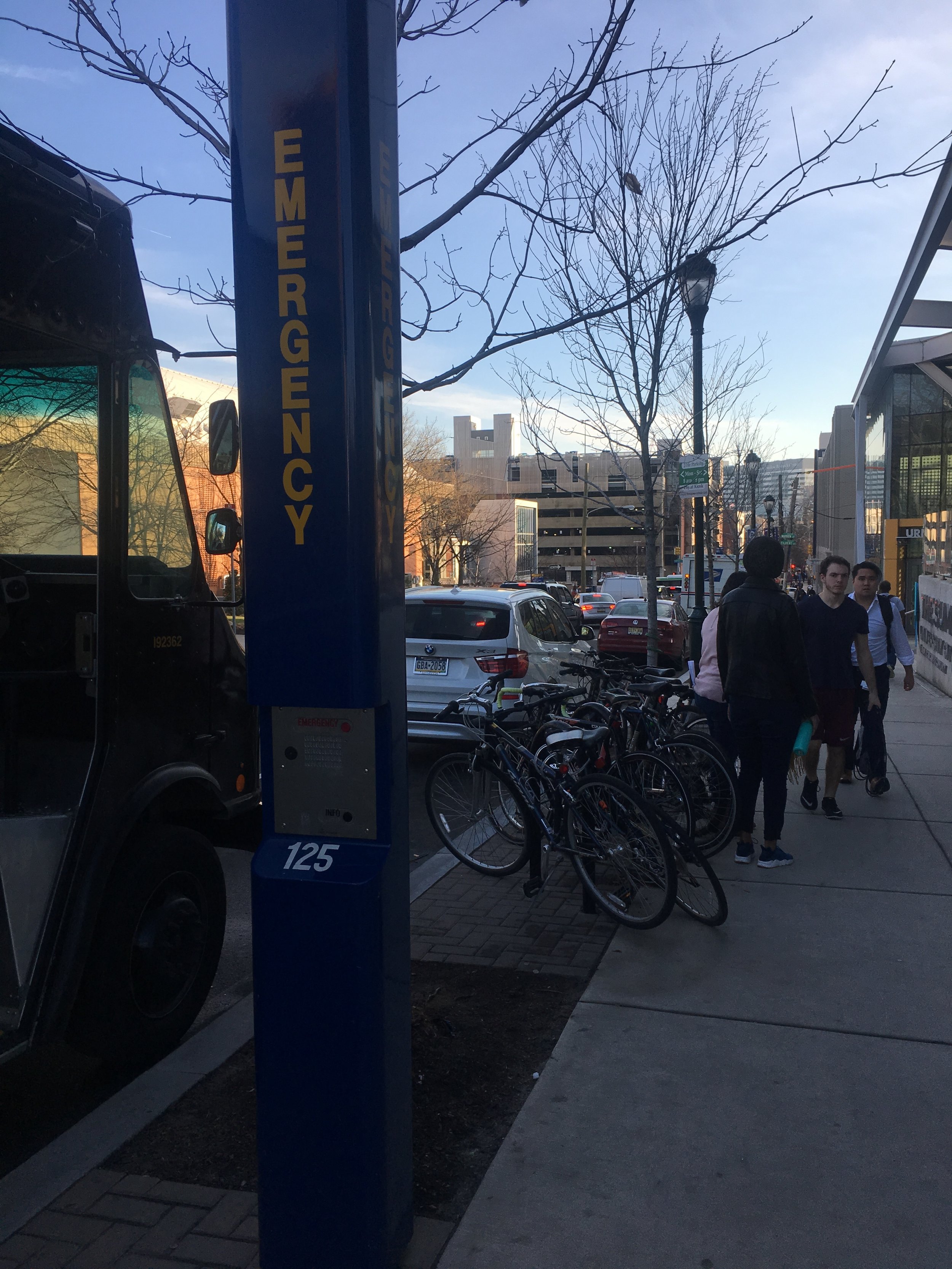
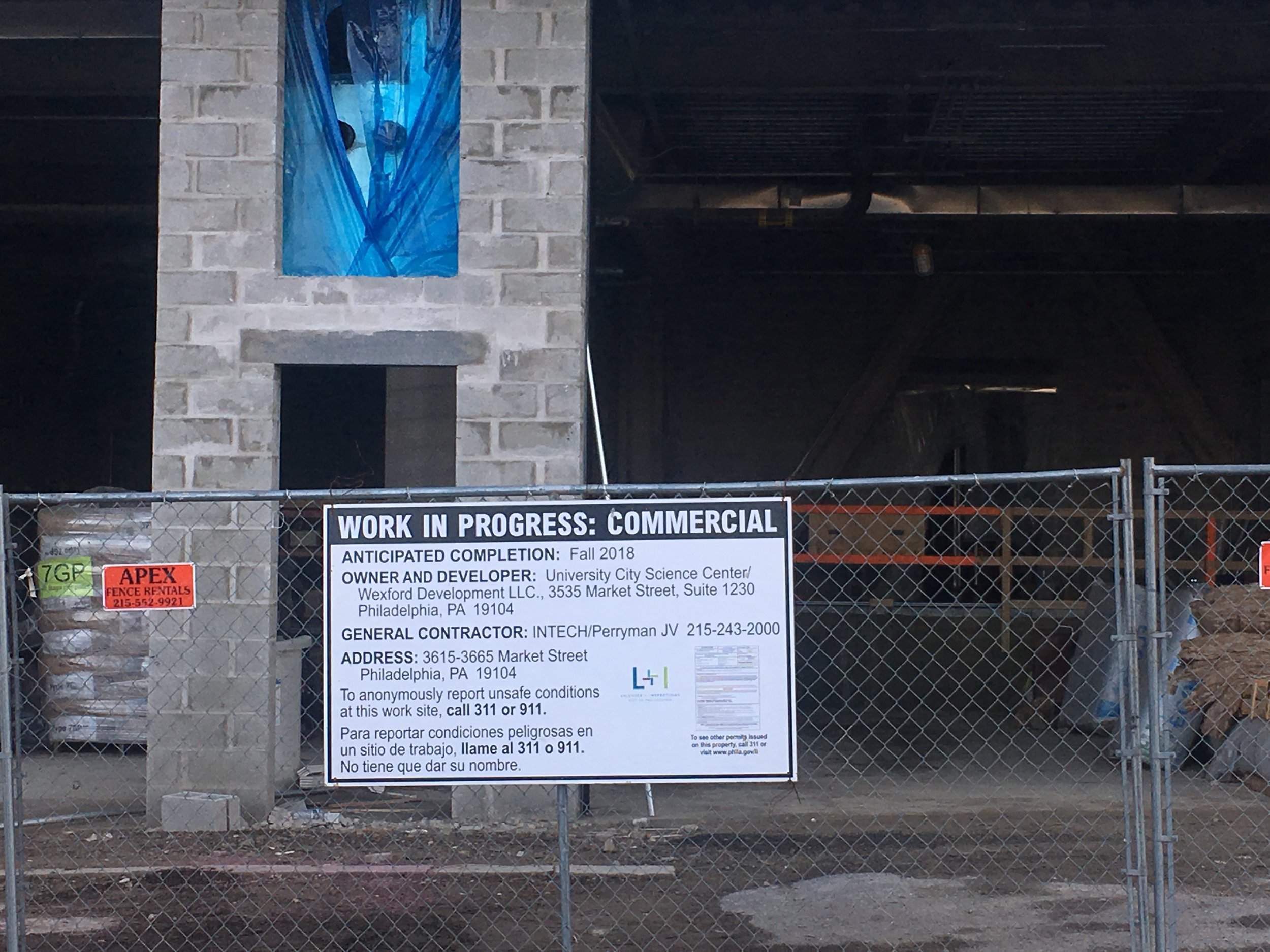
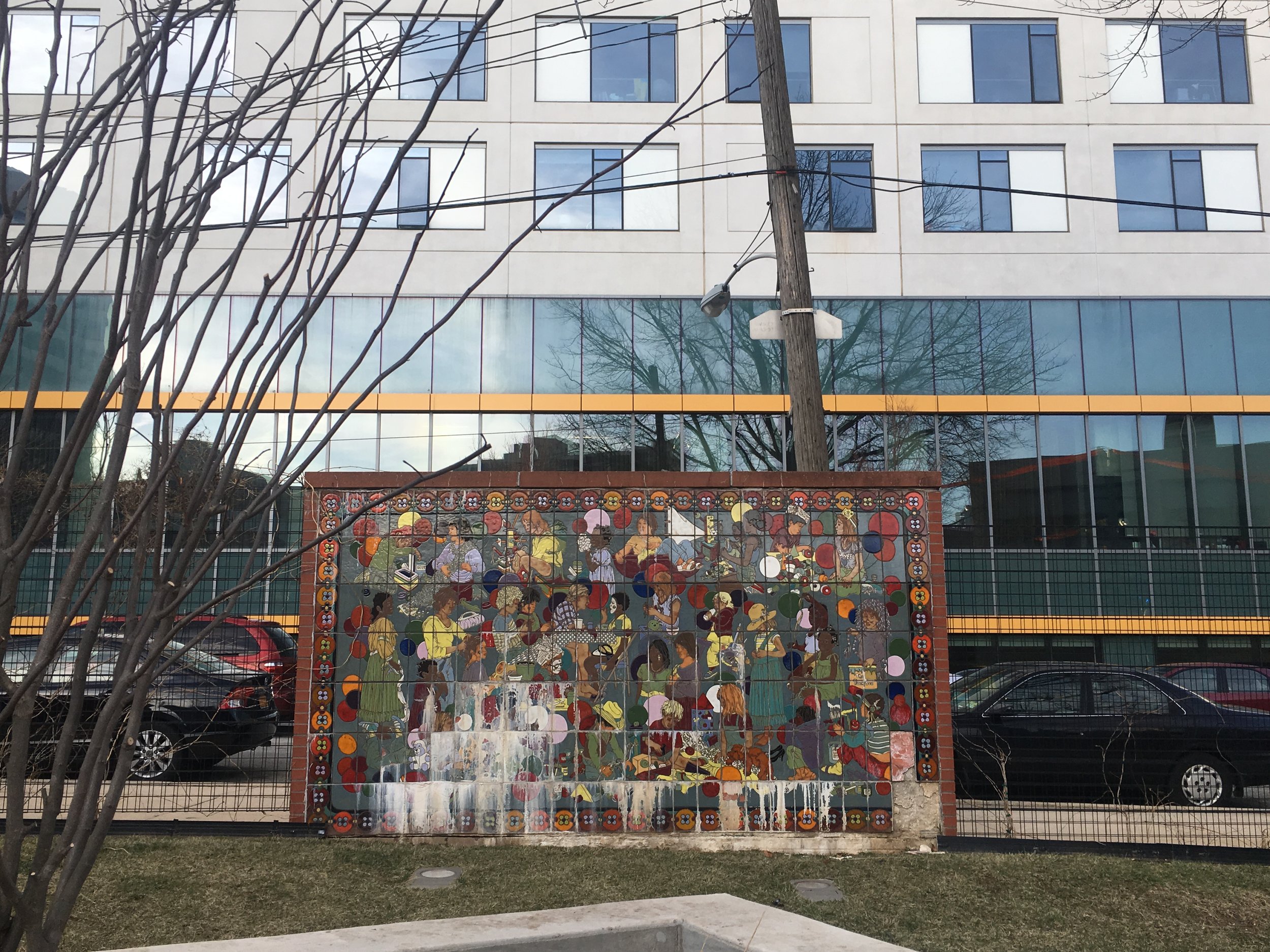
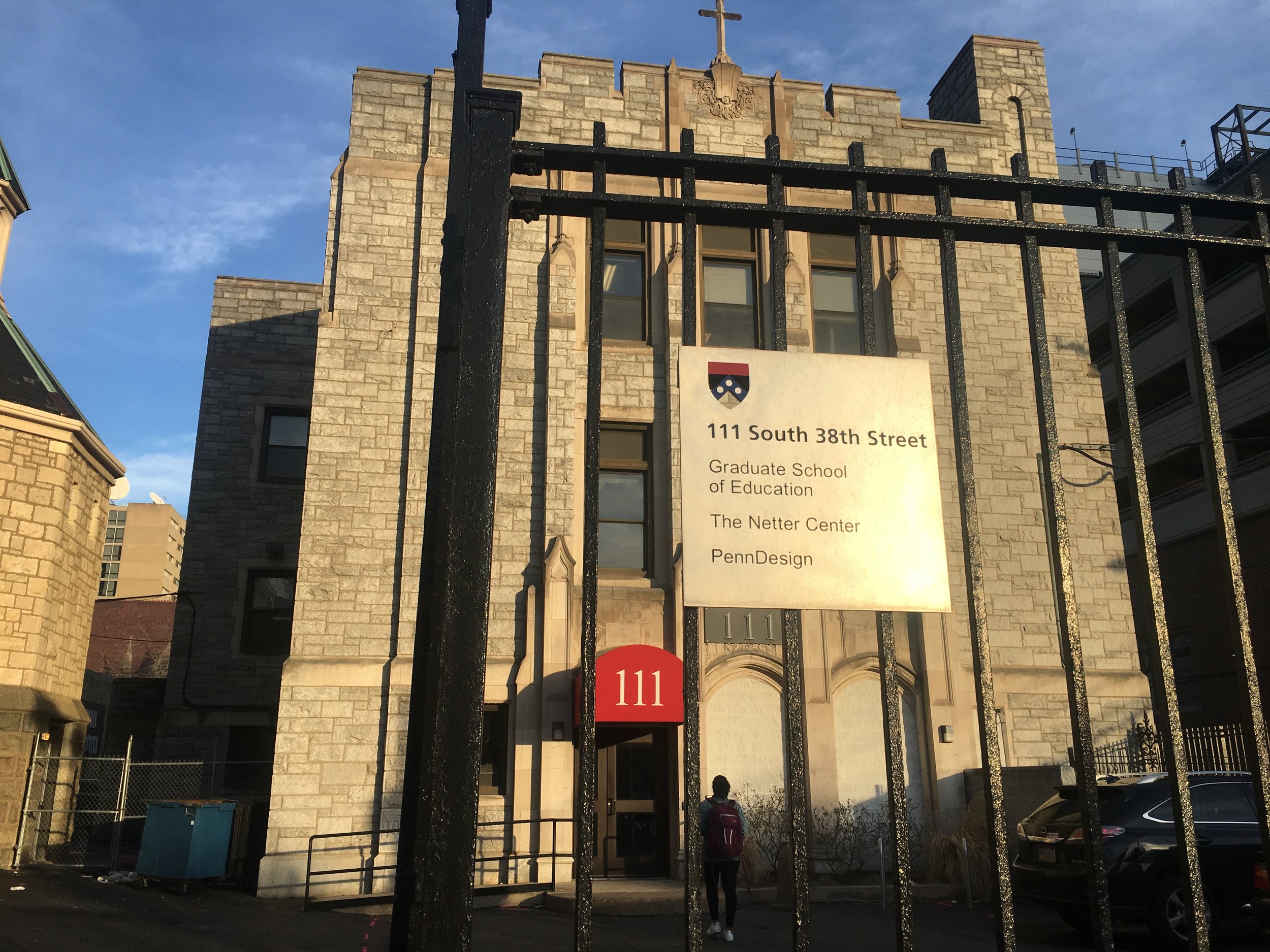
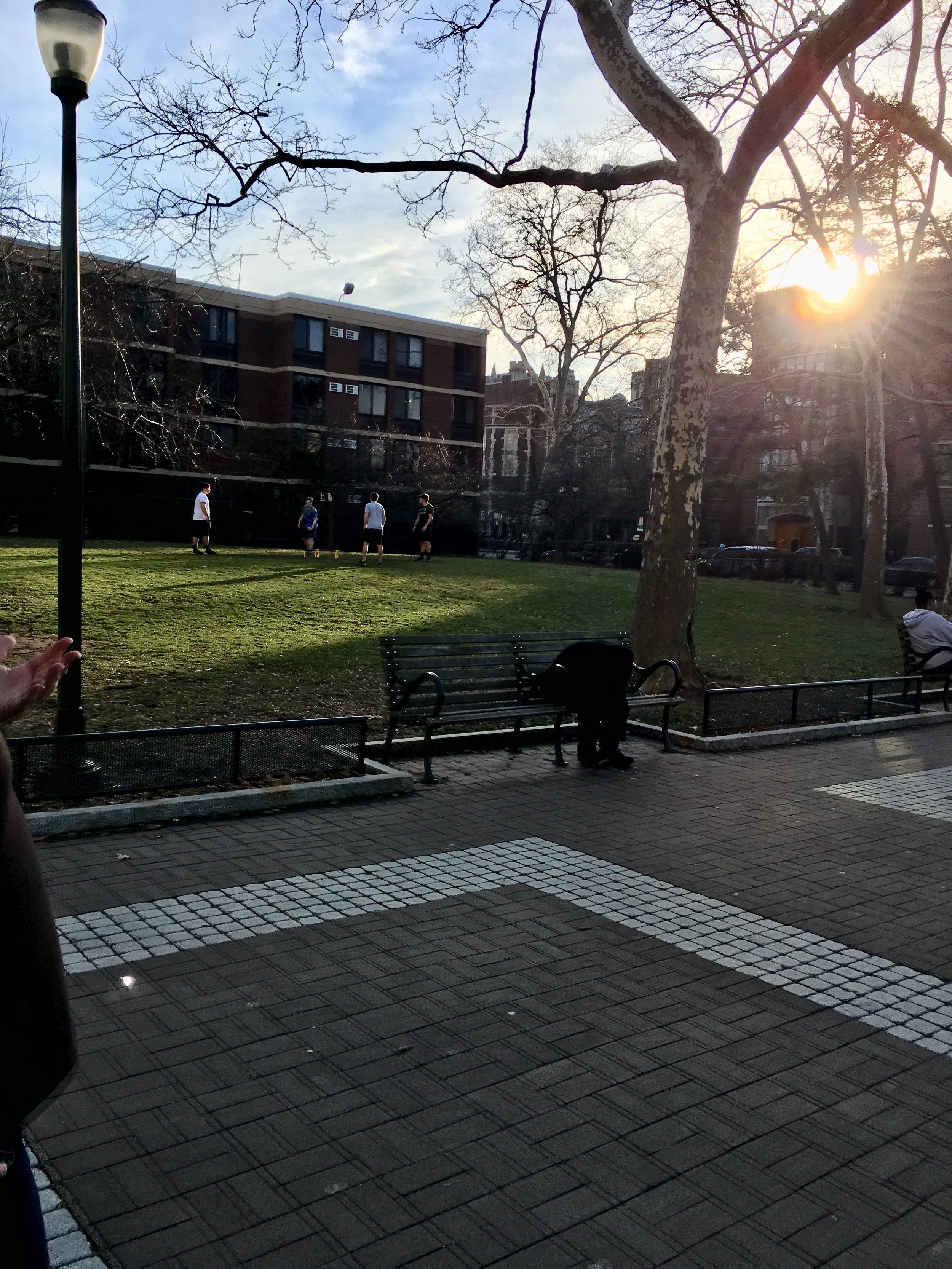
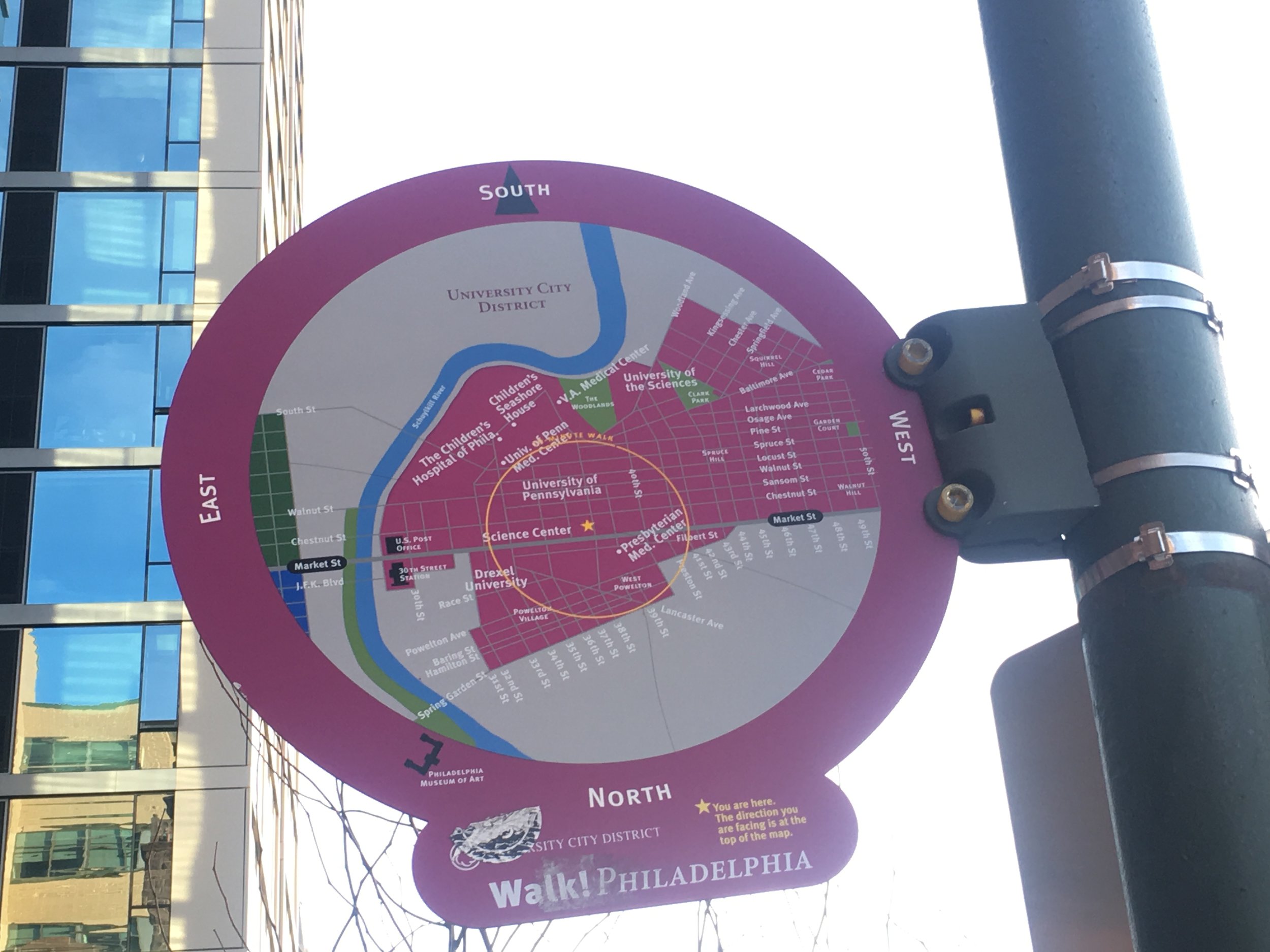
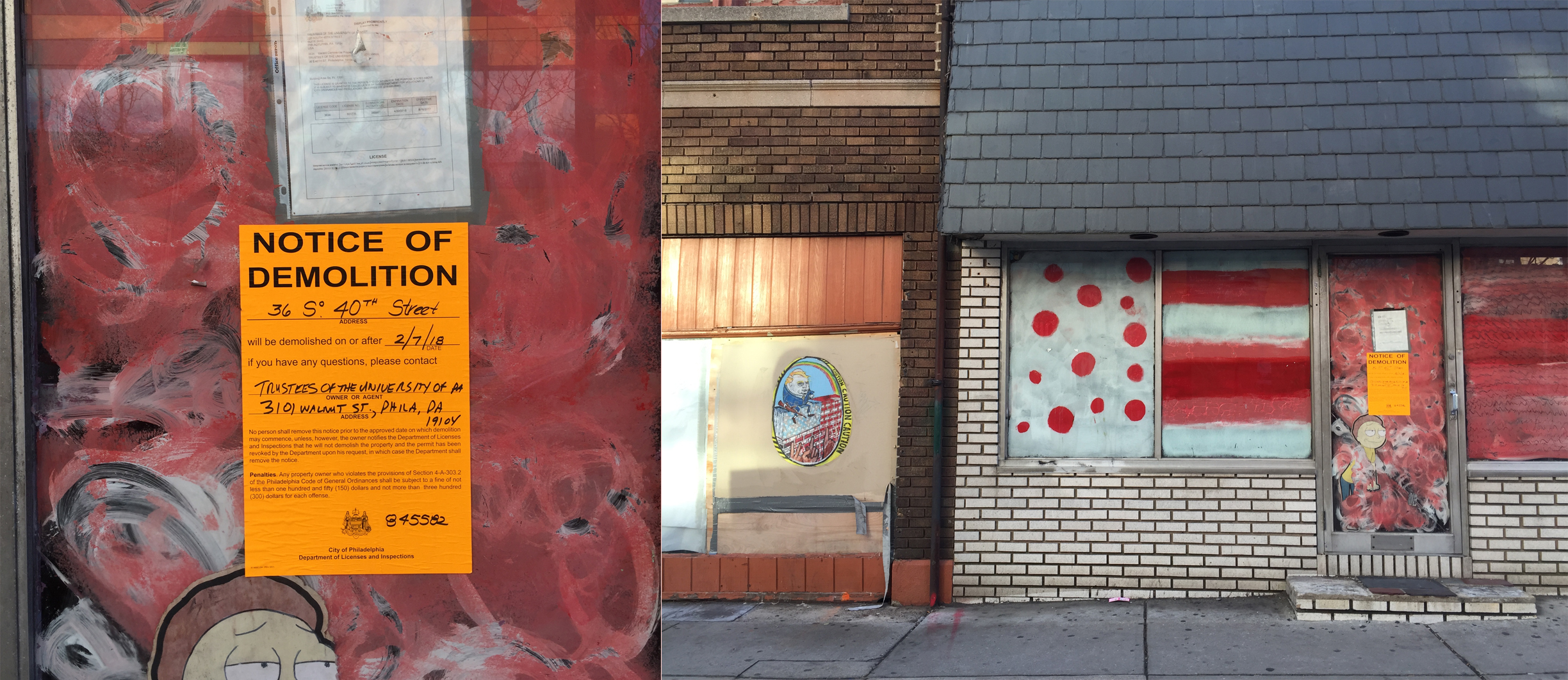
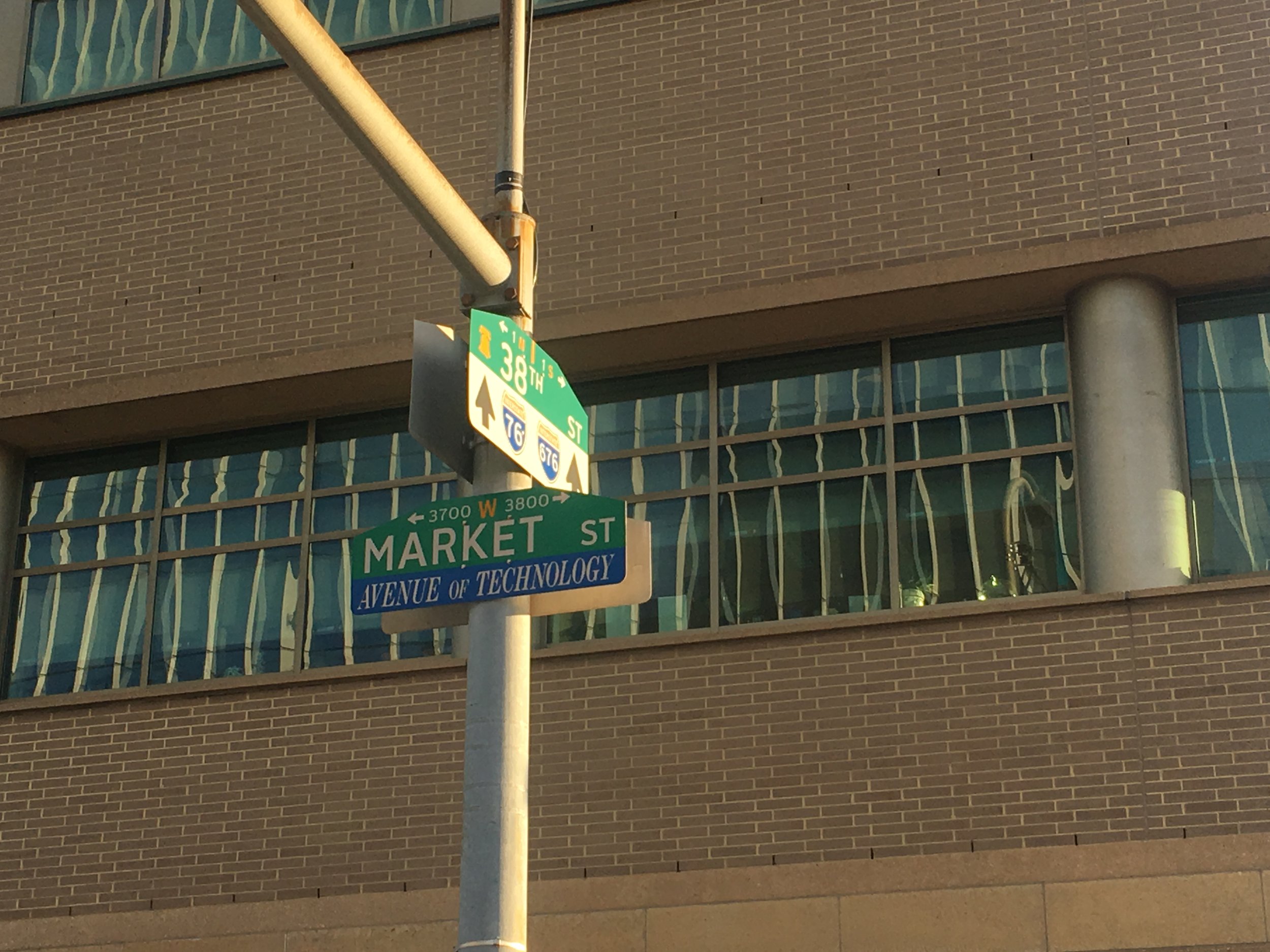
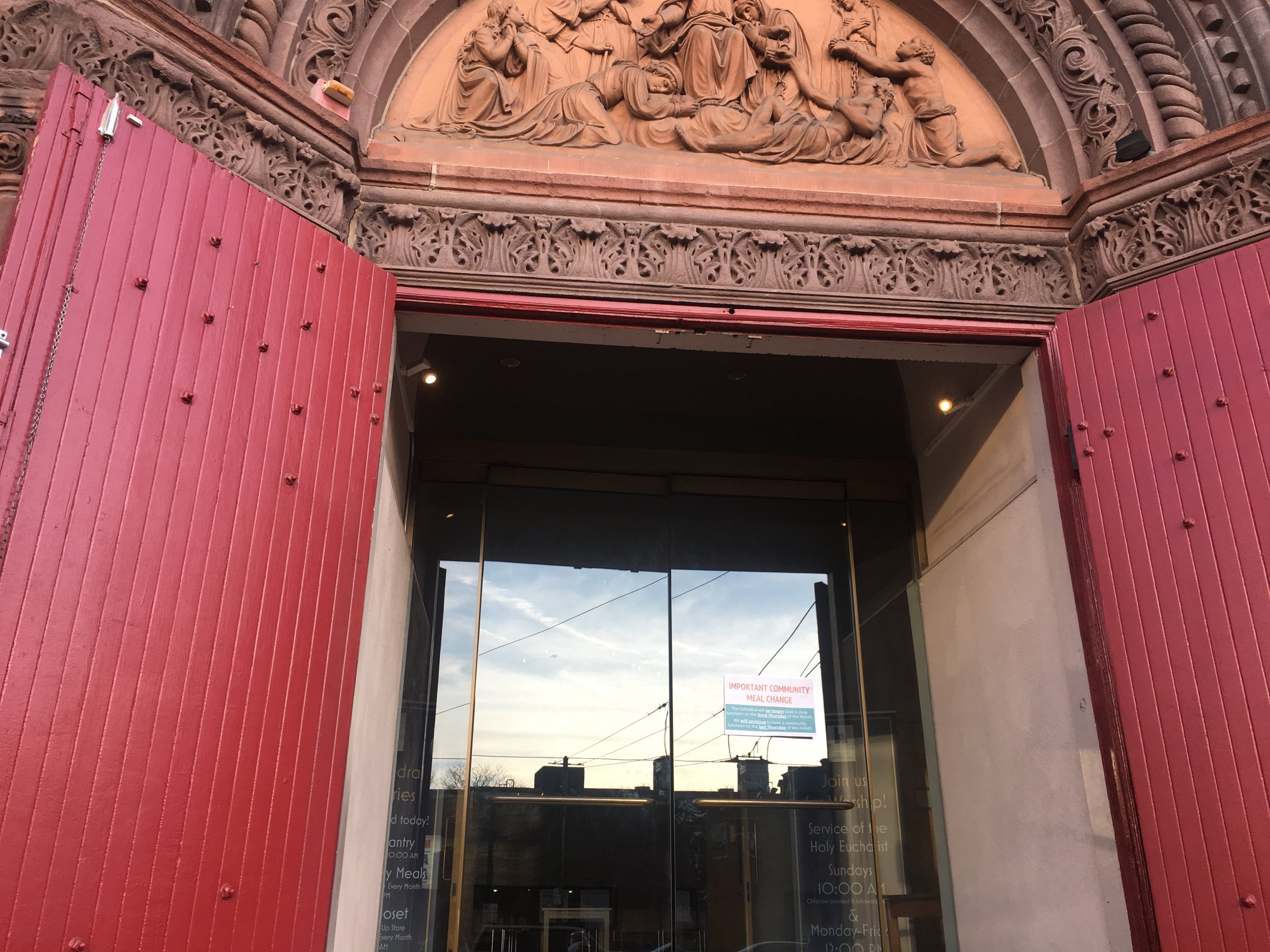


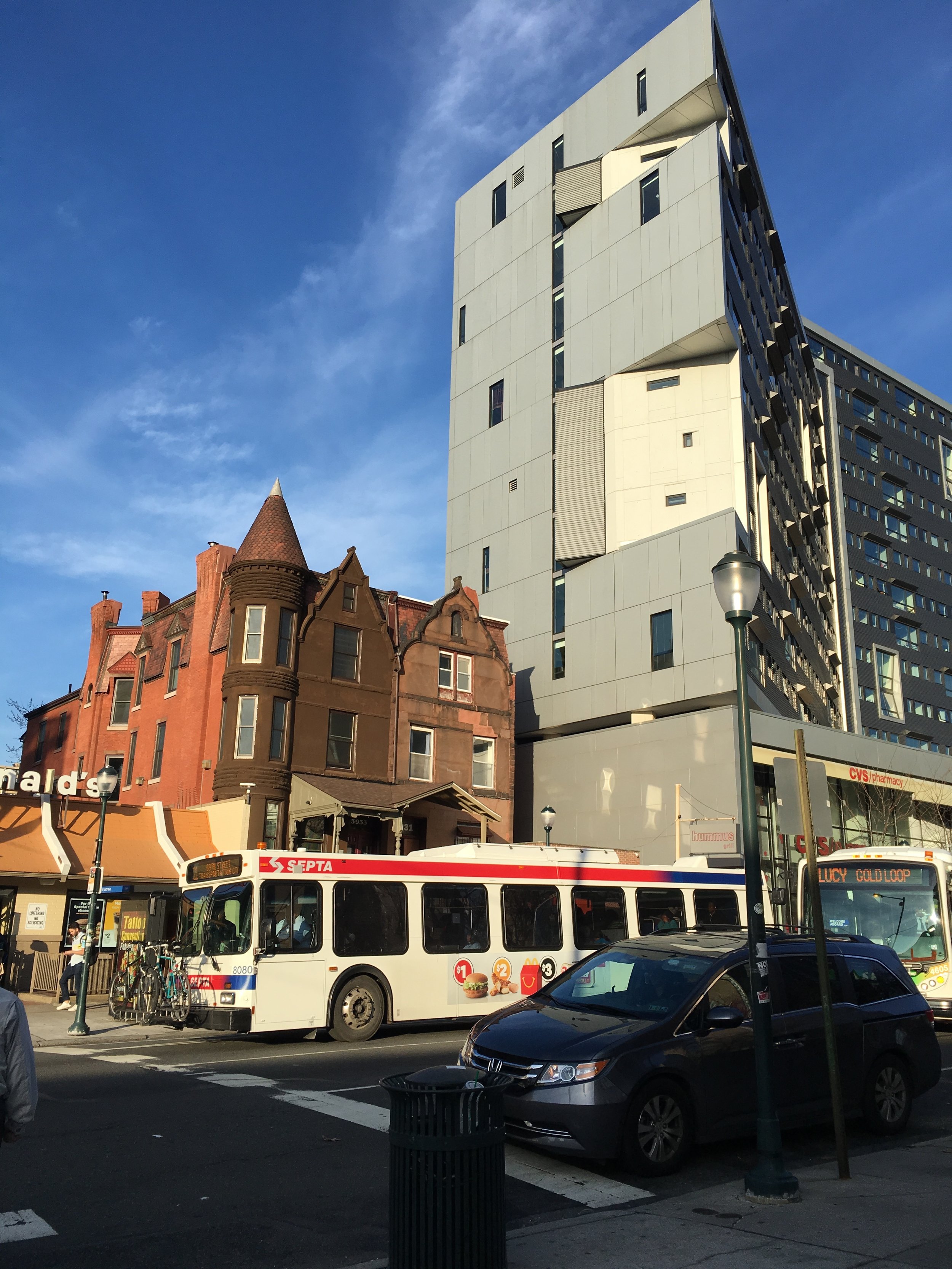
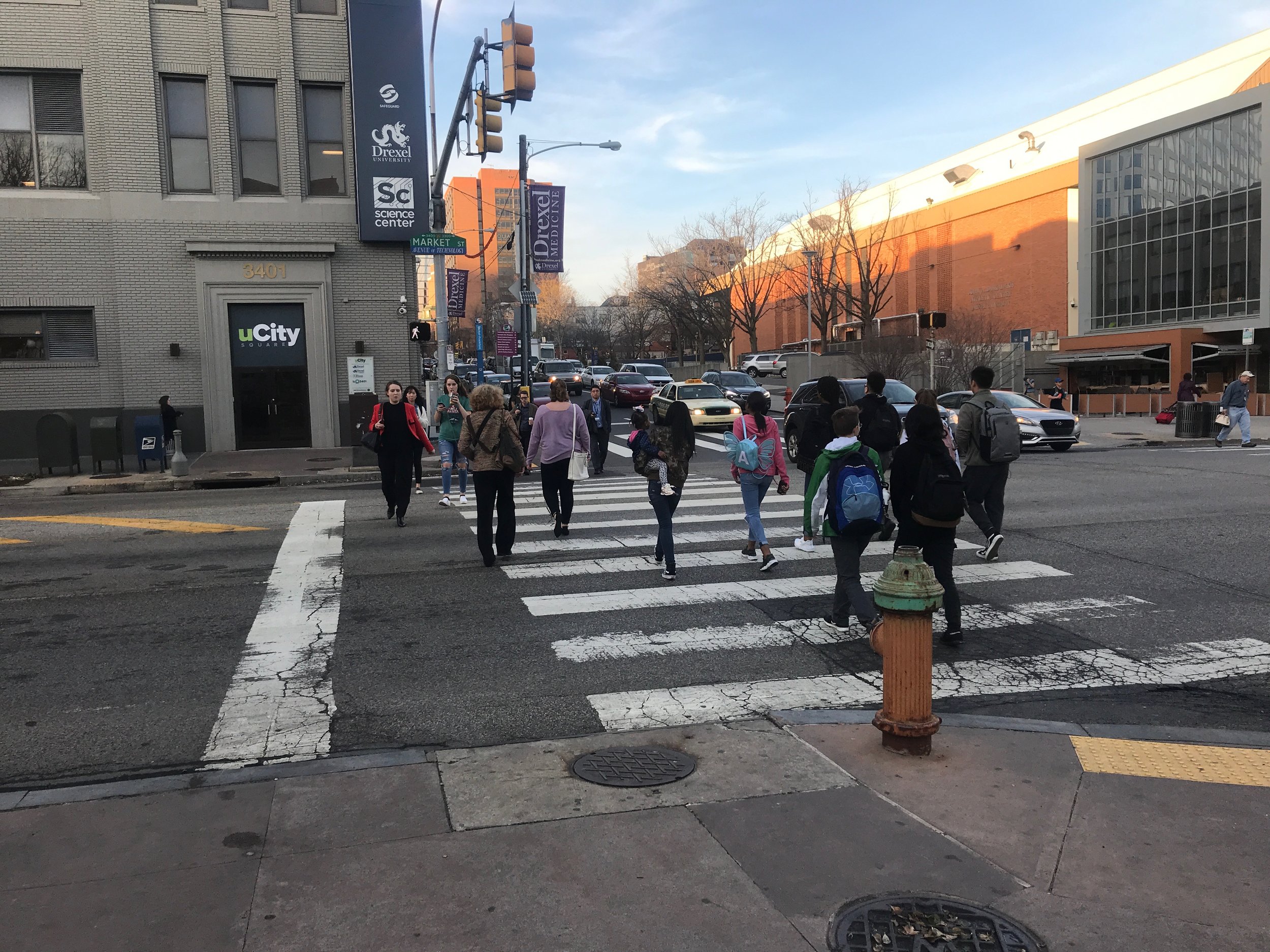
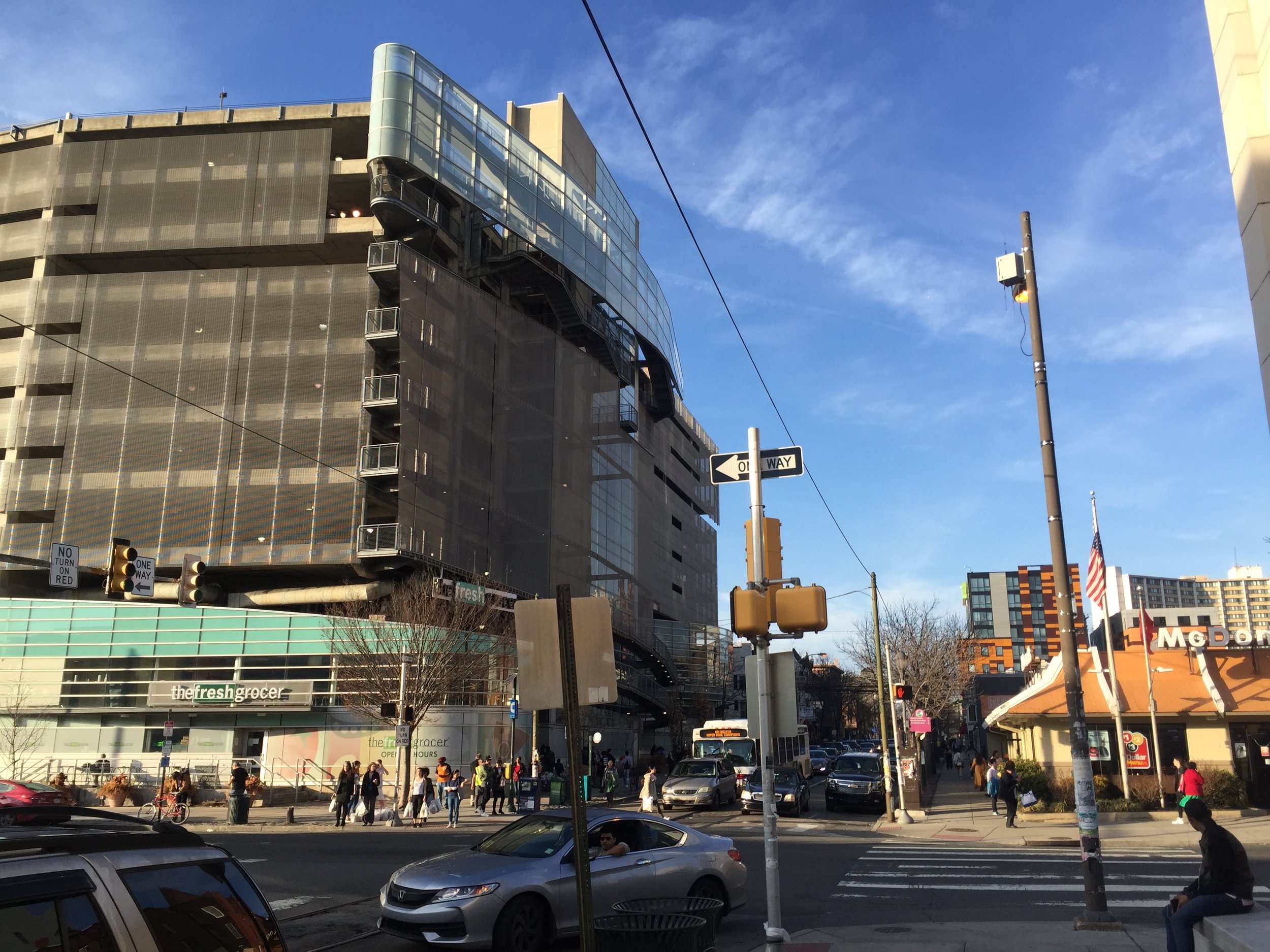
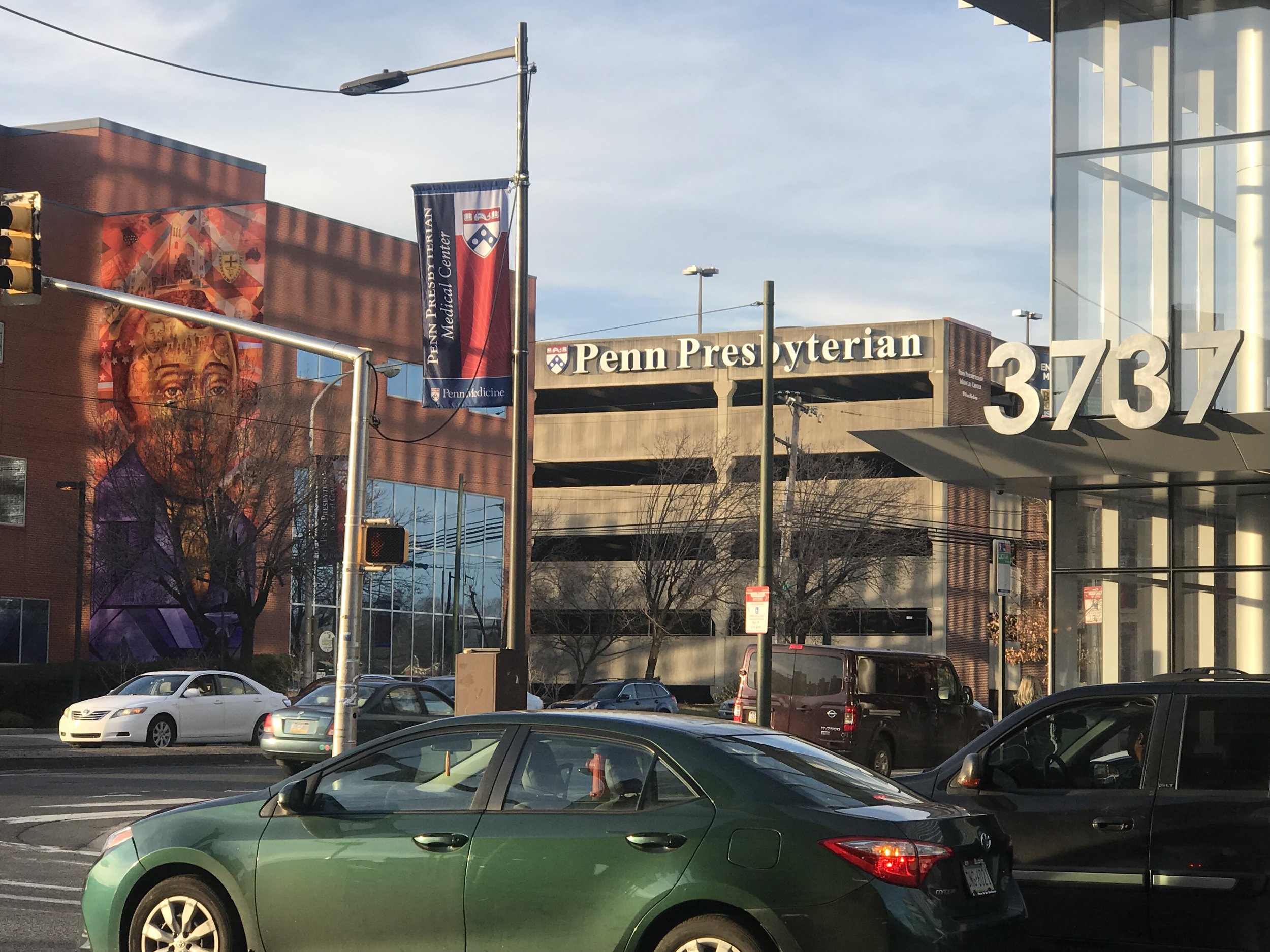
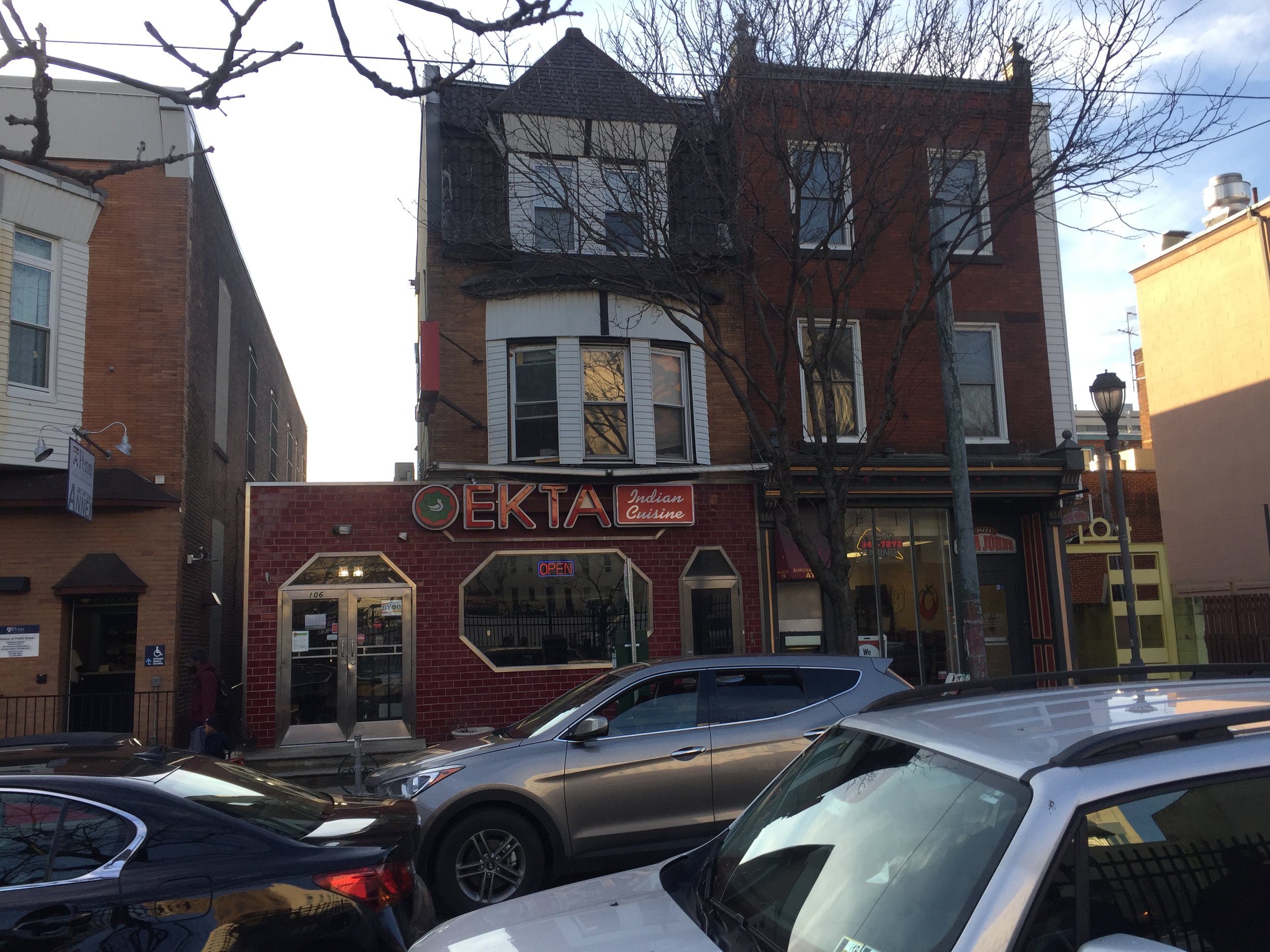
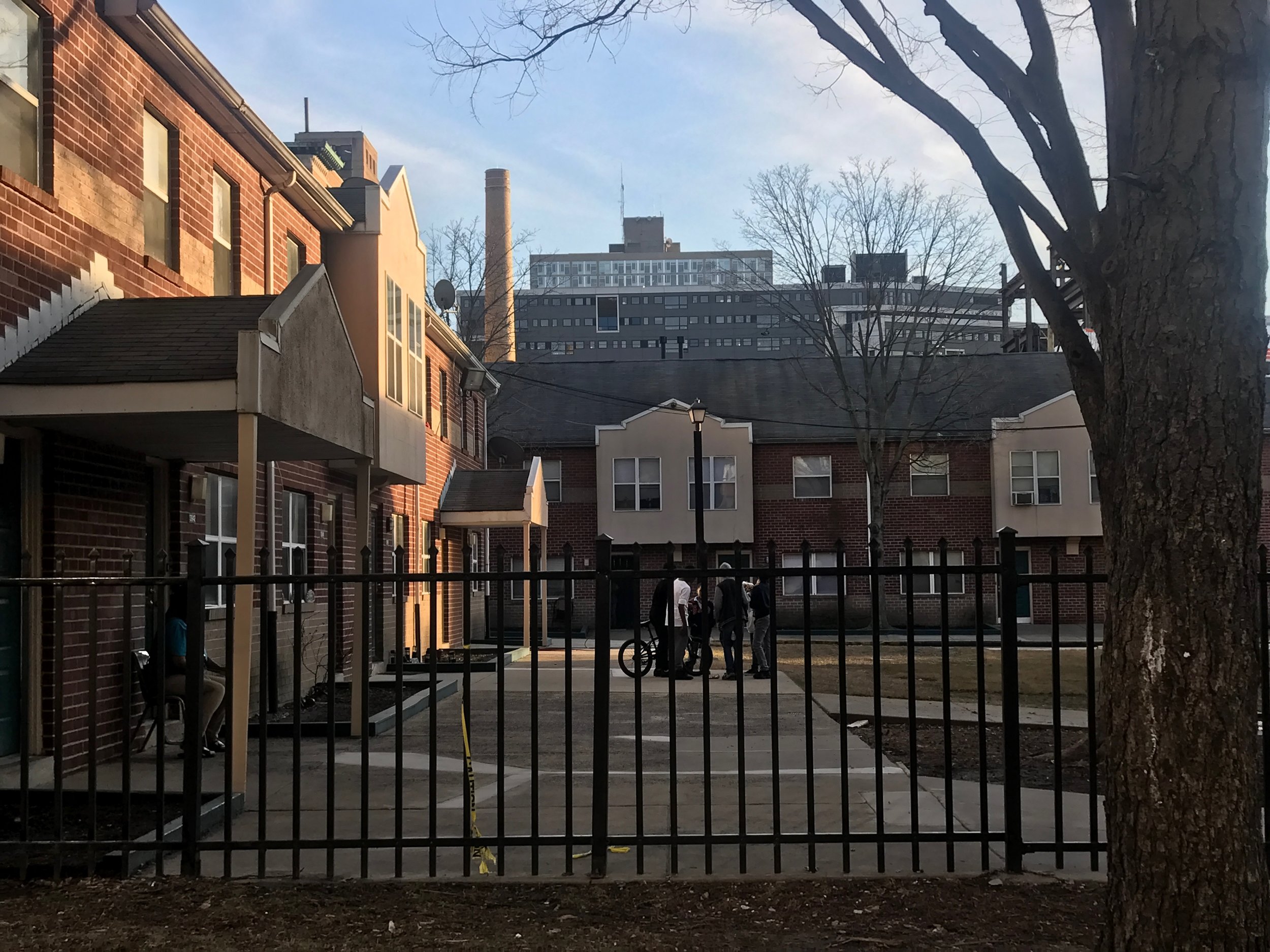
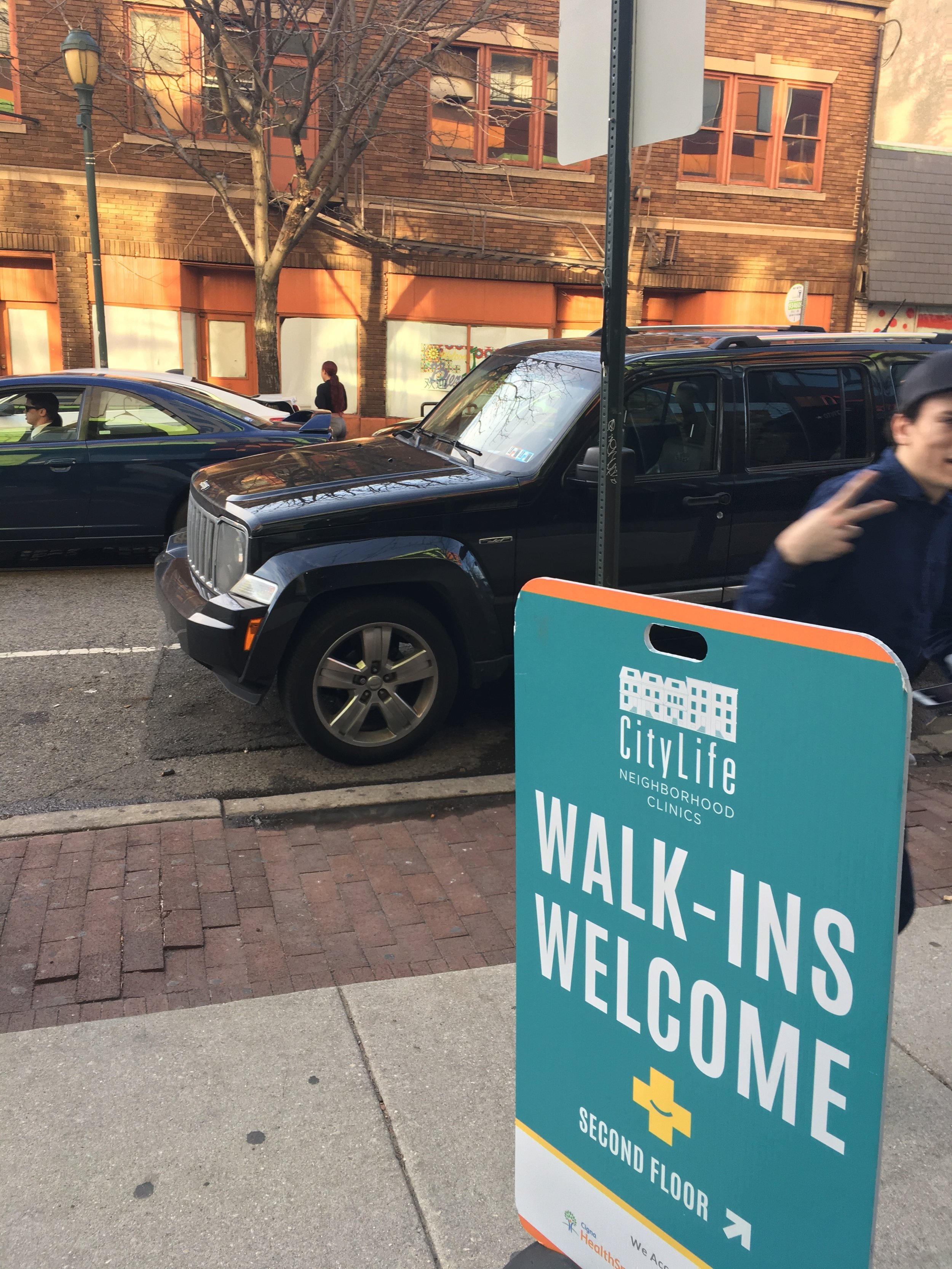
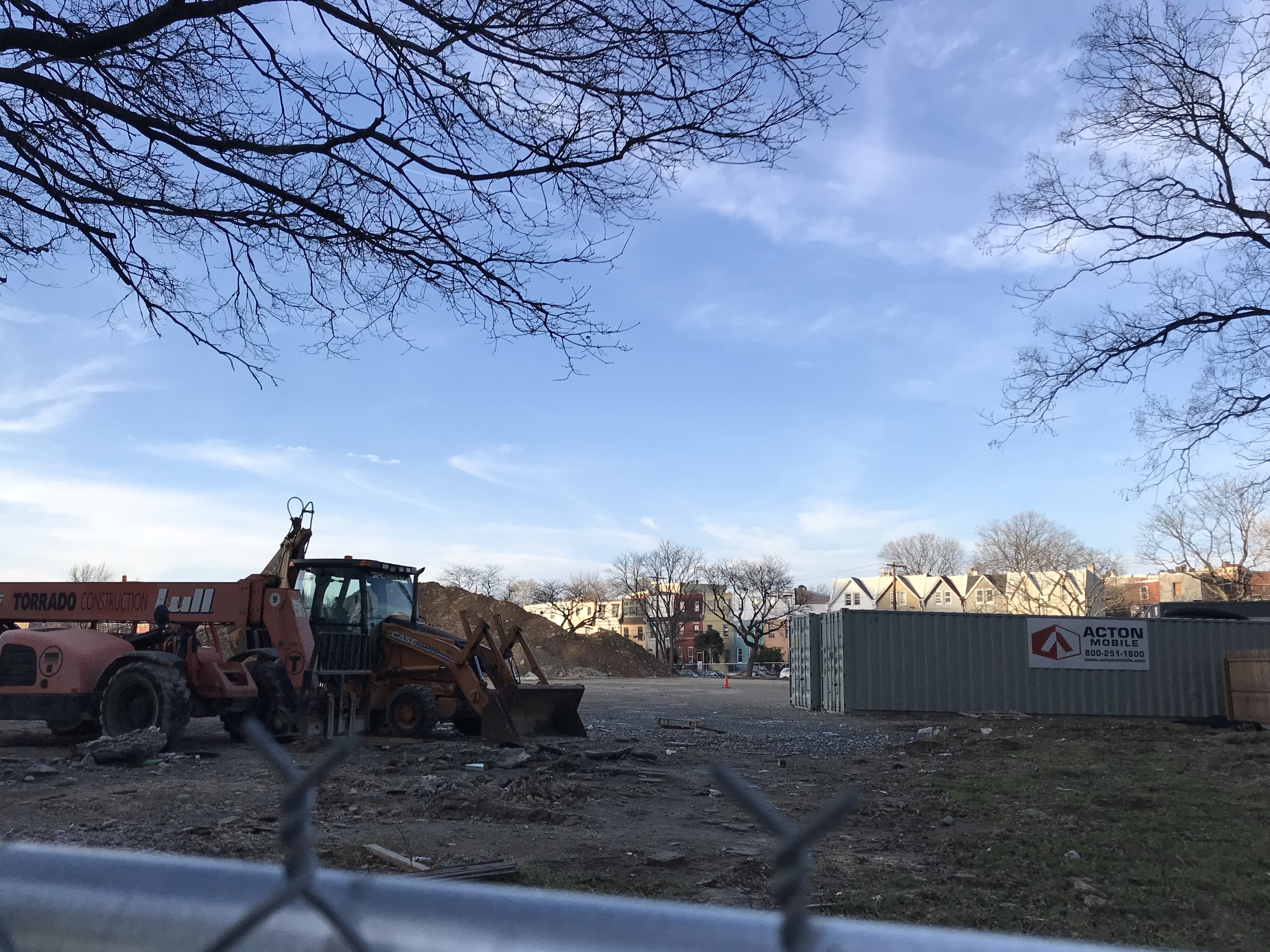
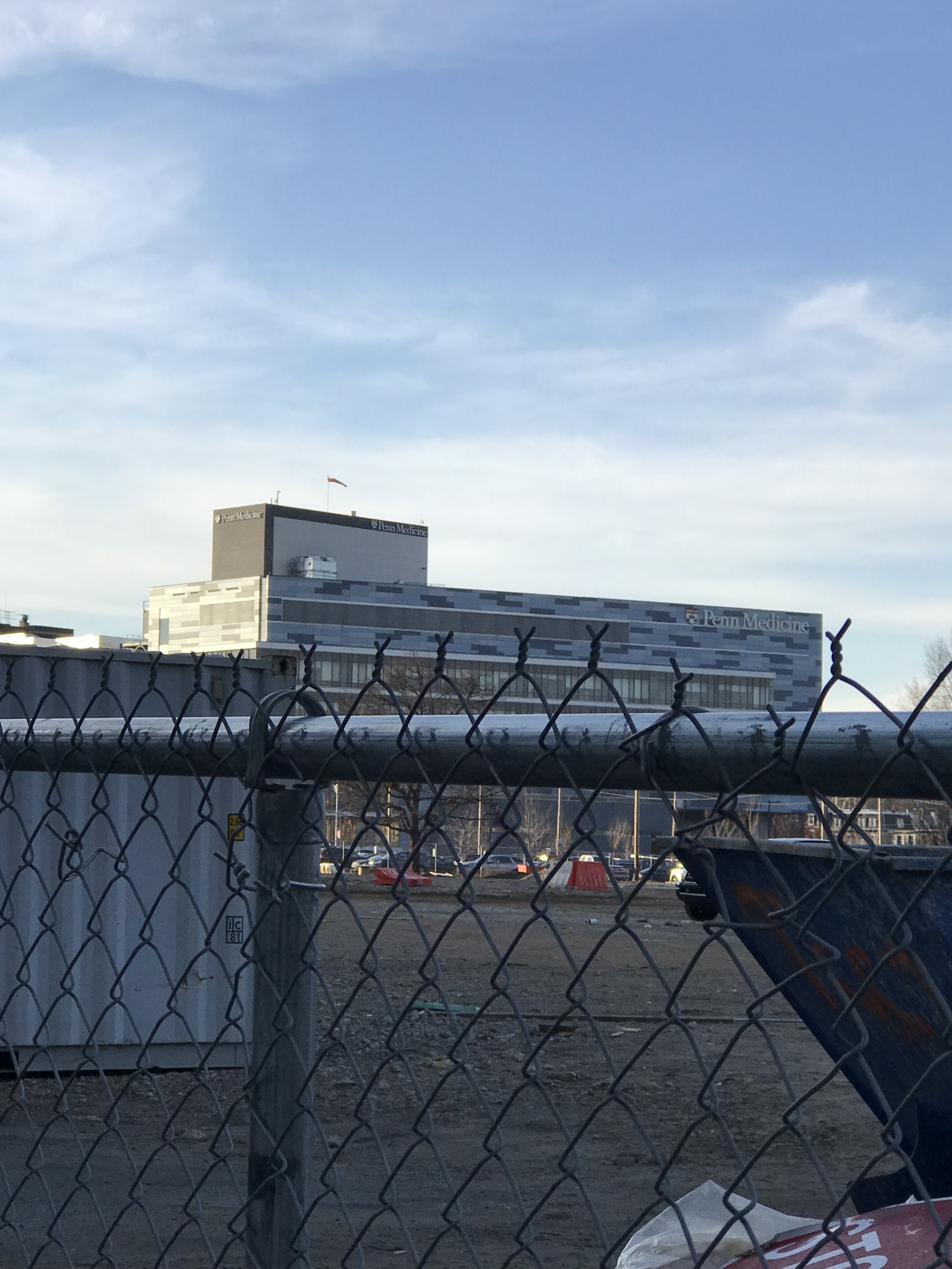
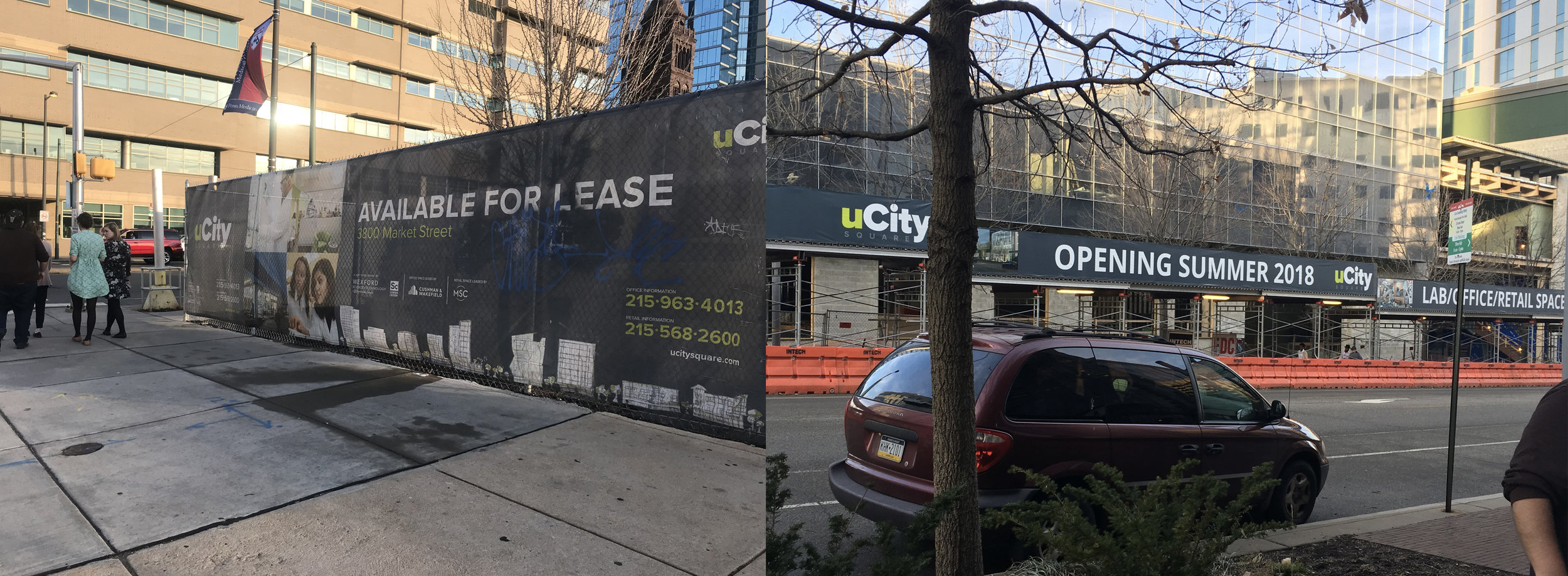
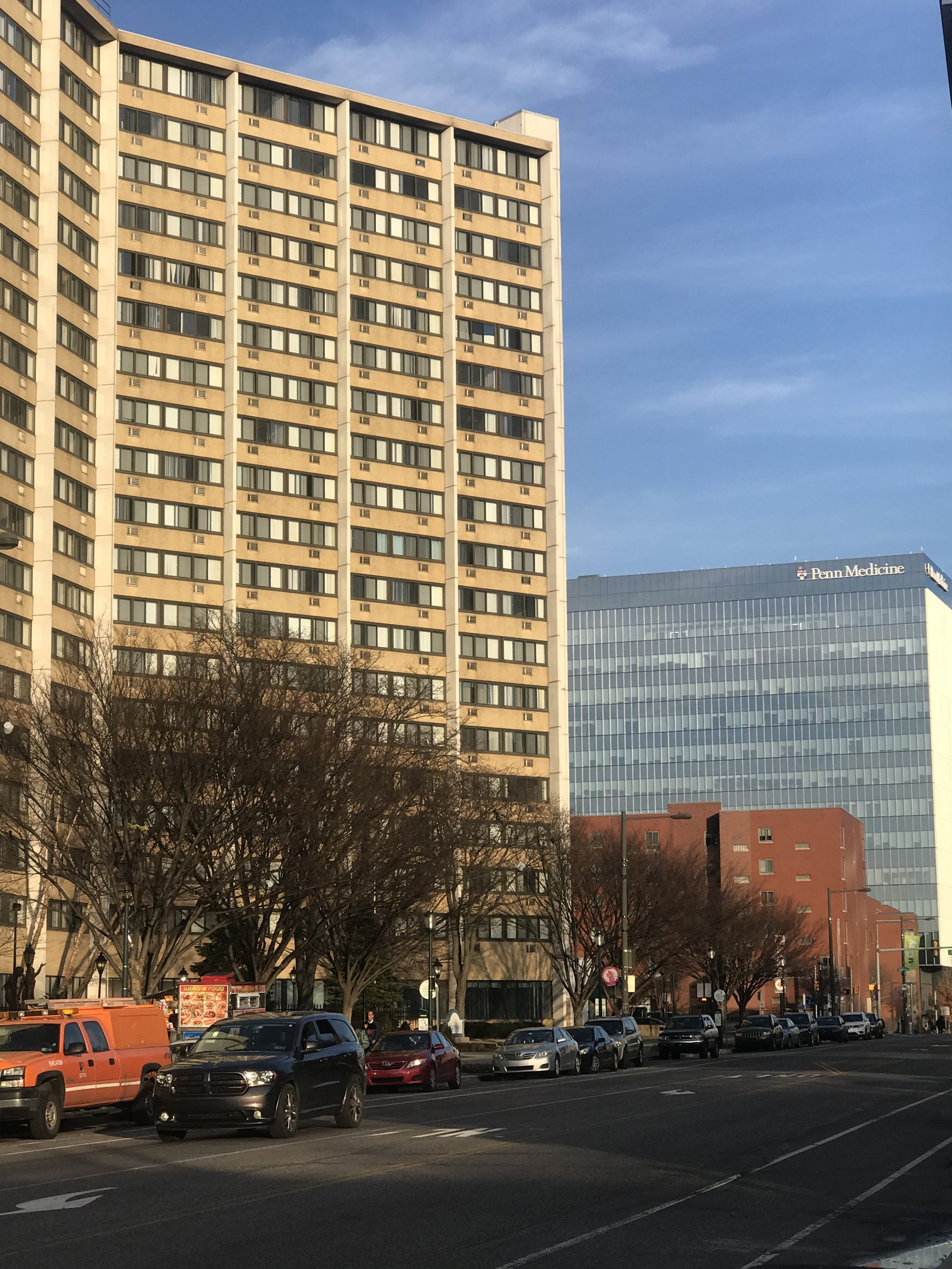
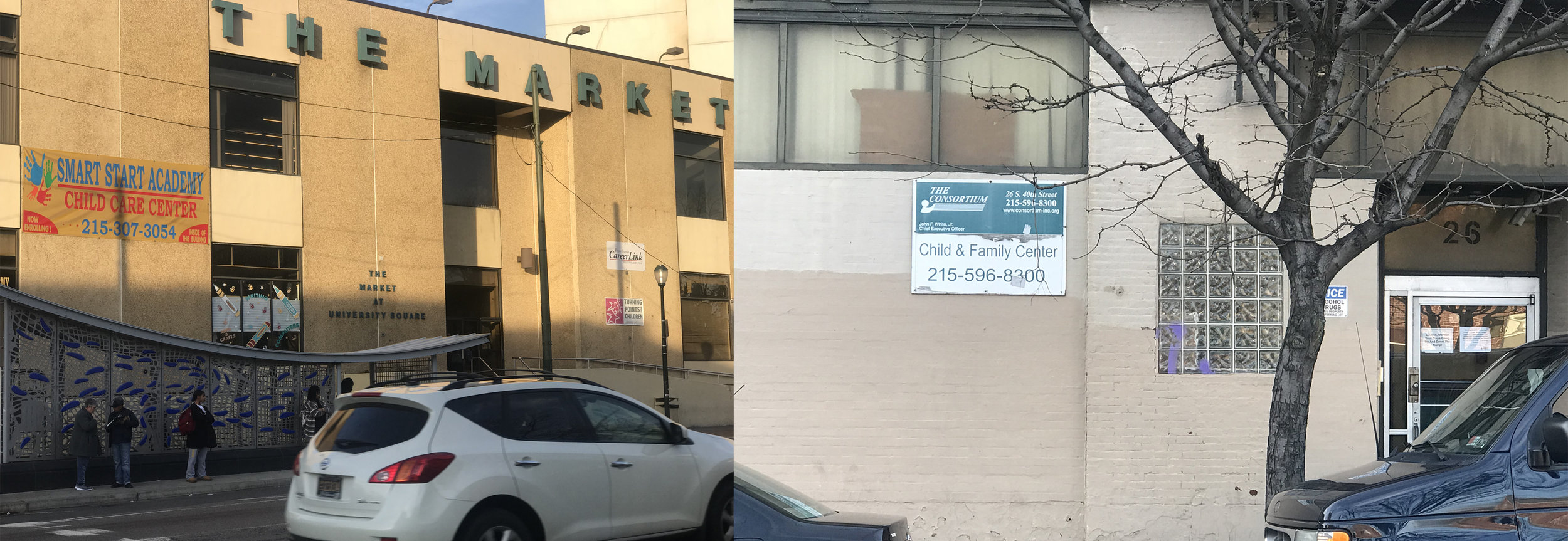
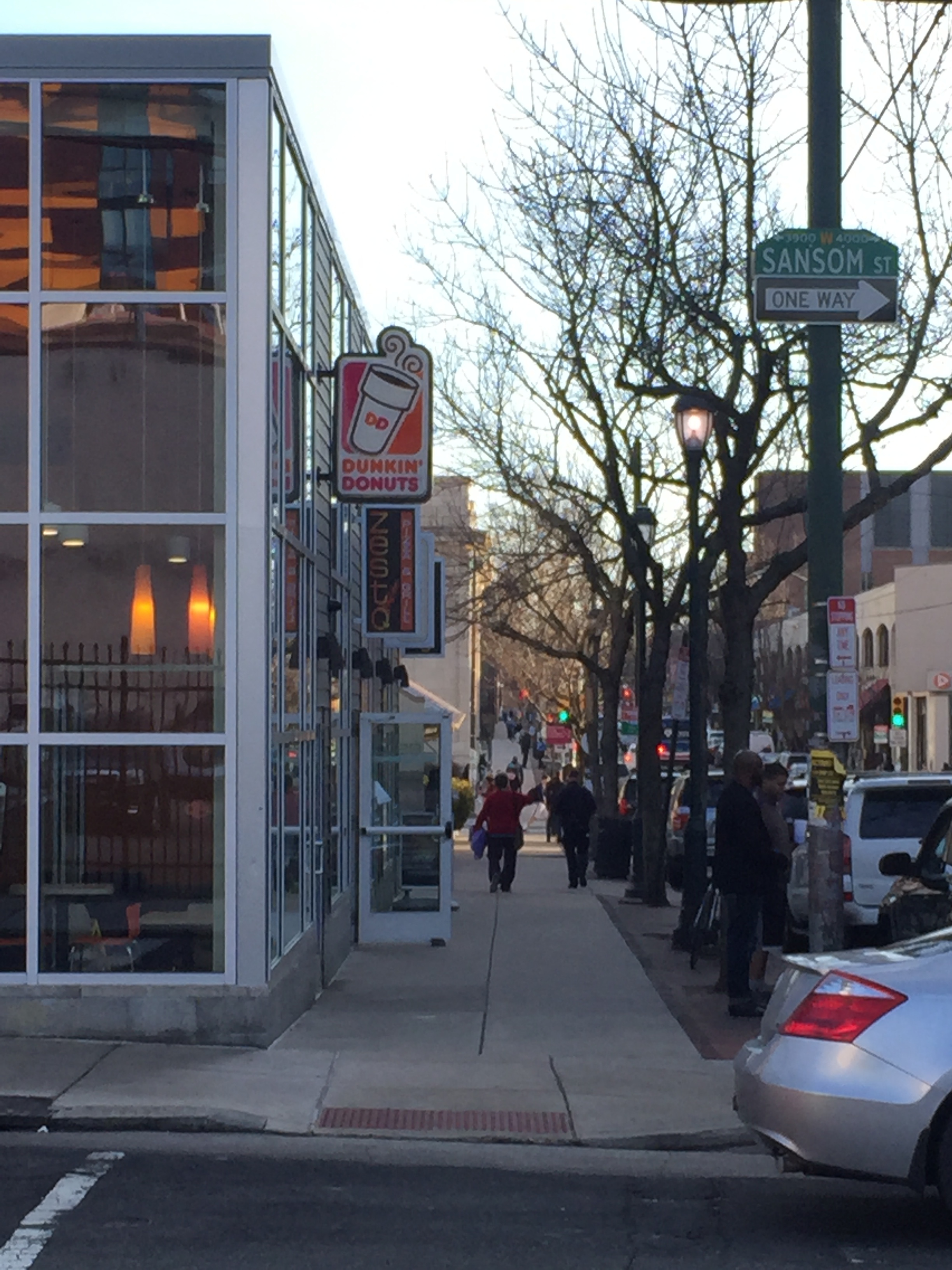
Week 2: Perspectives
Panel Discussion
For week two’s class session, the working group invited three speakers engaged with Penn-Community partnerships to share their perspectives and practice. This occurred in a panel-discussion format moderated by the working group.
















